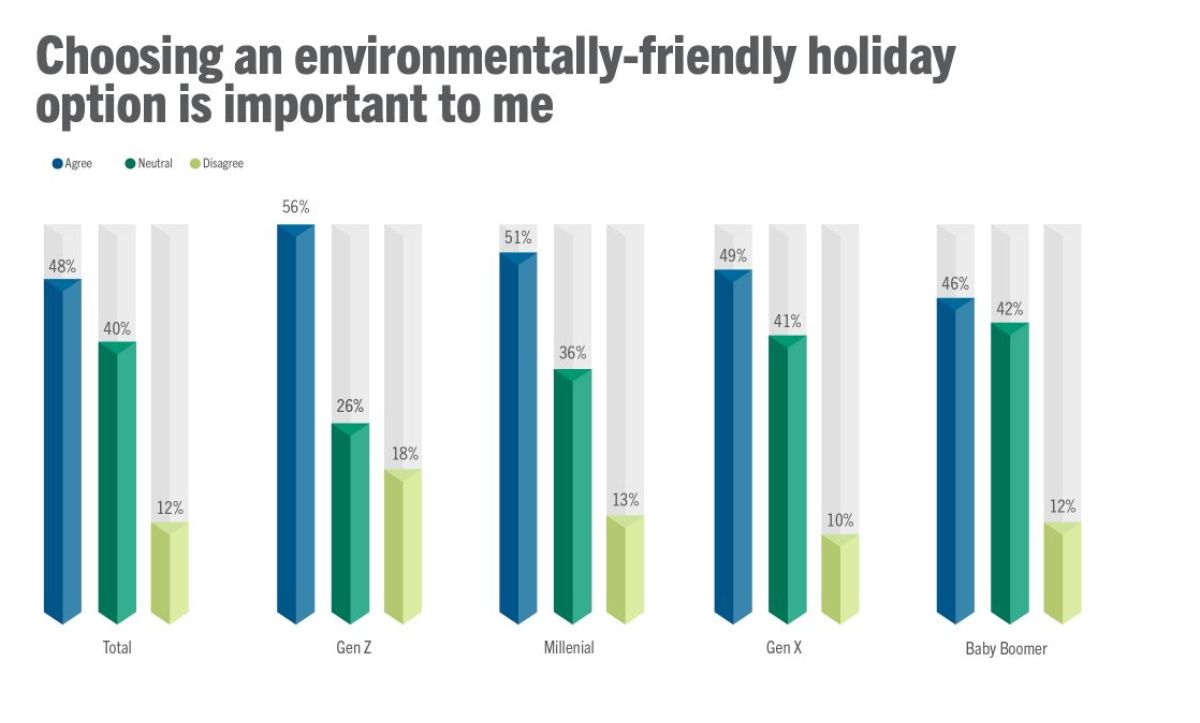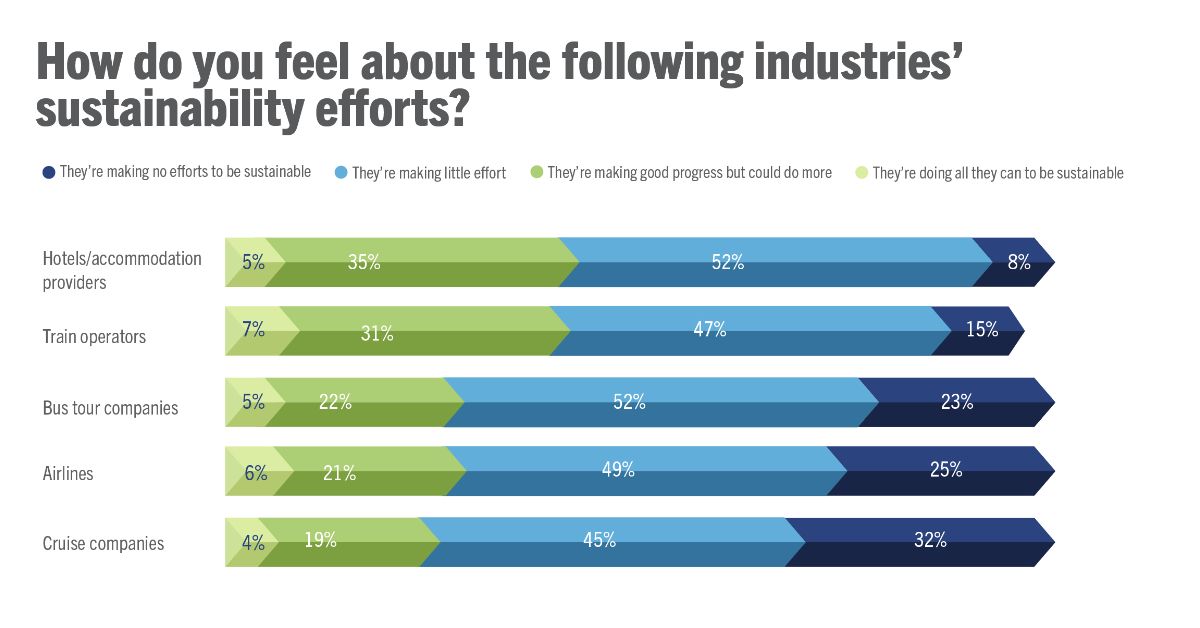EDINBURGH, Scotland — Findings of a survey conducted by STR’s Tourism Consumer Insights team in January 2020 revealed the importance of sustainable tourism as well as the impact of climate change on traveler perception. The survey captured the views of more than 1,000 international travelers from STR’s proprietary Traveler Panel, a global community of engaged travelers.
“Sustainable travel continues to be a hot topic in the tourism industry as travelers and travel brands alike increasingly scrutinize their impact on the environment,” said Sean Morgan, STR’s director of research. “Our research examined how ‘eco-friendly’ the modern traveler is and evaluated perceptions of the efforts made to implement greener and more sustainable practices in the tourism industry. No doubt, at least in part, influenced by the “Greta effect”, Generation Z and Millennial travelers had the strongest views when it came to ‘greener’ holidays as over 50 percent stated that an environmentally-friendly holiday was personally important.”

Nearly half (48 percent) of respondents said that choosing an environmentally-friendly holiday option was important, while 40 percent chose a neutral position. Thirty-five percent of travelers stated they wouldn’t want to visit a country that wasn’t making efforts to fight climate change, while 32 percent indicated that they would not be deterred and 33 percent were undecided. Overall, around 70 percent believed there is little or no effort to be sustainable among tourism providers. However, hotels/accommodation providers were the least poorly perceived when compared with other key travel and tourism sectors.

“Highlighting significant scope and potential for the industry to reinvent itself, the vast majority of travelers (92 percent) were concerned about climate change,” Morgan said. “However, there is a sense that the tourism industry lags behind the expectations of travelers as the majority considered accommodation providers and transport operators, such as airlines and train companies, to be making little or no effort to become more sustainable.”











